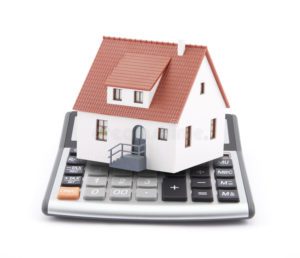 Many people purchase rural land for a variety of reasons. Many people want to live in rural areas and enjoy the serenity. Some people like the idea to buy and hold on to the land, waiting for the city to come to them.
Many people purchase rural land for a variety of reasons. Many people want to live in rural areas and enjoy the serenity. Some people like the idea to buy and hold on to the land, waiting for the city to come to them.
Investors generally want two things: return of their money (initial investment) and an economic return on the money invested. Rural land investment has been considered a way to achieve these two goals. Rural land will almost certainly yield an economic return if you wait long enough. Many investors buy land to hold for a long time, waiting for the market to create a favorable profit.
While holding rural land, and waiting for the land to become profitable, investors may want to consider operating a farm. Farms and farmers receive a favorable tax treatment. There is a strong pro farm current in many U.S. law (not just tax laws). The subsidy bills, which congress passes about every five years, are the most prominent federal laws geared toward agriculture. The average American might be surprised by the extent to which the federal governments subsidizes U.S. agriculture.
Harvesting Tax Savings
In Texas, the agricultural use valuation is one of the most popular property tax benefits. It is also known as an “ag exclusion.” This treatment can save you a lot of money. It’s not an exception, but a special way to value the real estate. In 1978, Texas’ Constitution was amended so that open-space land could be valued based on its productivity. In 1995, the Texas Constitution was again amended to allow agriculture appraisals for land used to control wildlife.
Property tax valuations are generally based upon the best use of land. However, agriculture landowners have the right to have their property tax calculated based on their productive agriculture value. The agriculture exemption can result in significant cost savings. Anyone purchasing rural land should be aware of the requirements to obtain an agriculture exemption.
For the special agricultural valuation, approximately ten acres of agricultural land are required. The land must be used primarily for agricultural purposes in five of the seven years preceding. The landowner must apply for the special agriculture appraisal with the local appraisal district.
Farmers can also get a tax break on certain items that are used exclusively for the production of agricultural products. This includes sales and use taxes and fuel taxes. To claim the exemption, the landowner will need to apply to the Comptroller of Public Accounts and obtain an agriculture registration number. This number can then be used when purchasing items that qualify. A tax exemption for agriculture from fuel and sales taxes can result in significant cost savings.
What is agriculture use?
The term “agriculture use” has a broad definition. The comptroller’s manual for the appraisal of agricultural land is the principal guideline. It states that agricultural use includes cultivating soil, producing crops, raising or keeping livestock or poultry, or fishing, or planting cover crops. The land may be used for exotic animals, birds (or bees), timber harvesting or wildlife management. Local appraisal districts publish guidelines on the level of agricultural intensity generally accepted by the county.
For federal tax purposes, IRS guidelines indicate farming could include:
- Operating a nursery, sod farm or a turf farm;
- Raising or harvesting fruit, nuts or other crops from trees;
- Raising ornamental trees is possible (but only if the tree is more than six years of age when it’s severed from its roots).
- Raising, shearing and feeding animals, as well as caring for, training and managing them;
- It is possible to lease land to a tenant who is engaged in farming, but only when the lease payments are determined by a written agreement that was entered into before any significant activities were undertaken on the land.
But the IRS cautions that farming does not include:
- contract harvesting of an agricultural or horticultural commodity grown or raised by someone else, or
- merely buying or reselling plants or animals grown or raised by someone else.
Hobby Losses
Another important tax benefit of owning and operating a farm is using economic losses from the farm to offset other ordinary income. The weekly release of current tax developments routinely includes at least one Tax Court case involving someone attempting to sustain tax losses from rural property that is said to be a farm (or ranch), and the IRS arguing that the taxpayers are merely engaging in a hobby.
The basic rule of “hobby losses” is often quoted but perhaps not readily understood. The governing statutes from the tax code distinguish trades or business from activities other than those engaged in for profit-or those engaged in as a hobby. The Internal Revenue Code allows a taxpayer to deduct “all the ordinary and necessary expenses paid or incurred during the taxable year in carrying on any trade or business” [IRC SS162(a)]. However, if the activity giving rise to the expenses “is not engaged in for profit,” deduction of expenses incurred in the activity is permitted “only to the extent that the gross income derived from such activity (i.e., the not-for-profit activity) for the taxable year exceeds the deductions.”
Activities not engaged in for profit are usually referred to as “hobbies.” Hobby expenses may be deducted from hobby profits but not from any other income the taxpayer may have. Of course, this is exactly what a taxpayer hopes to achieve by owning rural property–to deduct large sums of money year after year against other income the taxpayer derives from other (and genuine) businesses or trusts or other conventional sources of income.
Hobby loss rules are based on a presumption. An activity is presumed to be engaged in for profit if the activity shows a profit for any of three out of five consecutive years ending with the year for which tax deductions are taken. For horse breeding, training, showing, or racing, the period is extended to two out of seven years. This presumption is not an absolute bar from using the losses against ordinary income. Rather, the hobby loss rule is a presumption in favor of a hobby. This means the taxpayer can take deductions in excess of income over a longer period provided the taxpayer can overcome the presumption that the losses are engaged in for a hobby (i.e., not engaged in for profit).
An activity constitutes a “trade or business”–and it escapes the hobby loss limitations–if the taxpayer has an actual and honest objective to realize a profit. The courts look at all surrounding facts and circumstances.
In one of the more prominent cases, an Indianapolis restaurant owner and operator maintained a horse-training activity outside of the city. The Tax Court denied him the deductions on the grounds that he was engaged in a hobby, but the U.S. Court of Appeals (Seventh Circuit) upheld the deductions stating that the Tax Court misapplied the usual factors considered. The Circuit Court rejected the Tax Court’s explanation that a profit motive will not be found when a taxpayer combines horse-racing activities with social and recreational activities. The Circuit Court explained that a business owner’s enjoyment of his business doesn’t automatically make the activity a hobby.
Income Averaging for Farmers
Although income averaging is no longer generally available, farmers retain this helpful feature. They can average their incomes over three years.
Since farm income can vary widely from year to year, the ability to average becomes an important benefit. It provides a way to balance an income tax burden over several years, reducing the effects of both lean and bounty years. Tax brackets increase the more income one earns. Thus, for bounty years, taxes increase because the tax bracket increased. Averaging allows the taxpayer to reduce the harsh effect of the higher brackets in the bounty years.
Special Rules for Debt Relief
Special relief from cancellation of indebtedness income is an important tax provision for the farmer.
For most taxpayers, when debt is cancelled, the relieved debt is income. The principal exception is when the taxpayer is insolvent. If debt is cancelled when the taxpayer is insolvent, there is no income. Farmers do not have this requirement. They can avoid debt cancellation income if the debt was incurred directly in connection with the farm’s business activity and the taxpayer’s predominate income (over 50 percent) for the past three years comes from farming. The lender or creditor of the debt in question must also be in the business of lending money.
Conservation Improvements and Restoration
Expenditures for conservation expenses is an important area of favorable tax rules for farmers.
These types of expenses are normally capitalized, but for farmers they are deductible. The tax code provision describes the pertinent conservation expenses as those for the purposes of soil and water conservation with respect to land used in farming, or for the prevention of erosion or farmland.
The farmer is required to have a conservation plan, which the U.S. Department of Agriculture must approve. If there is no plan, the improvements must be consistent with a soil conservation plan of another state agency concerned with farming.
Deductions for conservation expenses are limited to 25 percent of farm gross income, but a carryforward is permitted. The limitation being expressed as a percentage of gross farm income is an important feature, suggesting the potential for offsetting other nonfarm income.
Vehicle Expense
Farmers receive liberal treatment for their auto and vehicle expenses.
The normal requirement of documentation to support auto or truck expense is waived for farmers. Up to 75 percent of vehicle expenses are deductible even without documentation.
Nothing in this publication should be construed as legal or tax advice. For specific advice, consult an attorney and/or a tax professional.
Original Blog: https://www.recenter.tamu.edu/articles/tierra-grande/Greener-Pastures-2386





